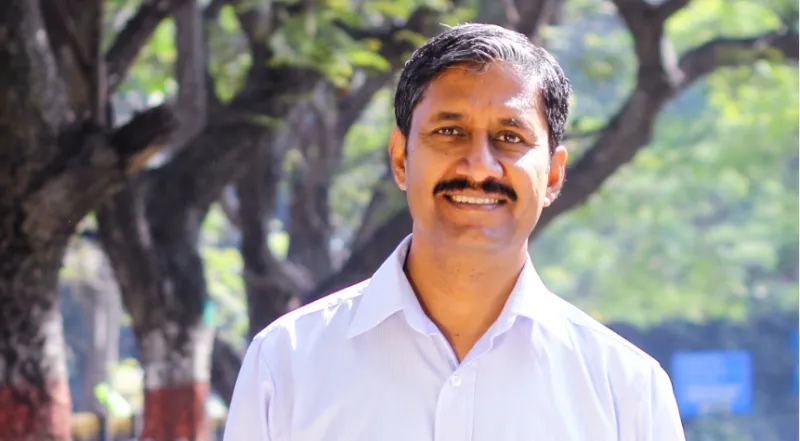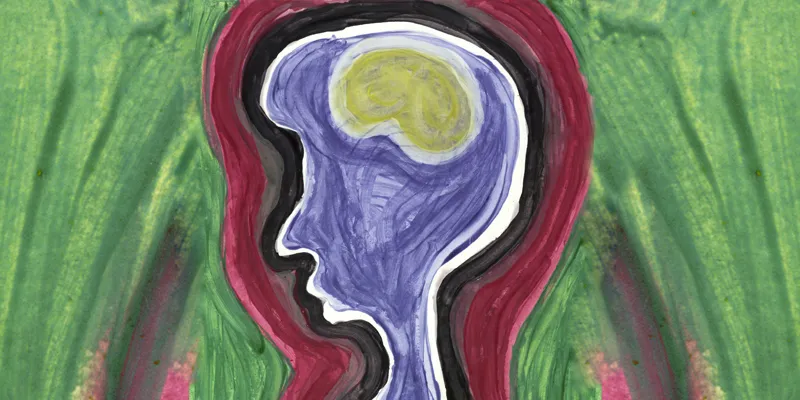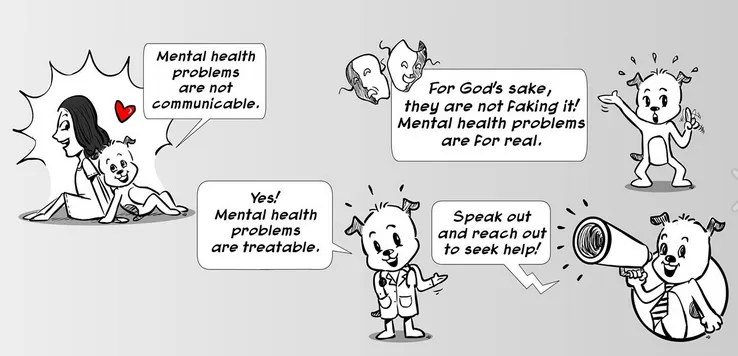It’s not just Deepika Padukone who is raising awareness about mental health -- White Swan story
Manoj Chandran is a soft spoken guy but behind his unassuming demeanour, there is a determined entrepreneur wanting to make a difference.
A keynote address from Subroto Bagchi, Chairman of Mindtree at the Institute Day celebrations of the National Institute of Mental Health and Neuro Sciences (NIMHANS), got Manoj thinking about mental health issues seriously in 2013.Today with his non-profit venture in the mental health space, White Swan Foundation, he has demonstrated that you can realize a dream that you set out to achieve. In a country, where mental health is still a taboo and most issues pertaining to it brushed under the carpet, Manoj’s attempt deserves an applause from all of us. Read his story and join his quest to bring mental health the attention it deserves.
The reason behind starting up
In August 2013, after spending three years at Ashoka, the pioneering institution of social entrepreneurship, I was asking myself questions about my future career move. I went with the questions to Mindtree Chairman Subroto Bagchi, who has been my mentor for several years now. He asked me to explore the field of mental health and the opportunities that lay in the field to create and disseminate knowledge to the public.

For the next four months, I spent researching on the field, speaking with several mental healthcare experts, particularly reputed psychiatrists and psychologists at NIMHANS, and social entrepreneurs who have been working in the field of mental healthcare for several years. I learnt that for all the psychosocial problems that exist in mental healthcare, the underlying issue is the lack of access to the right information.
Based on the research, we developed a model for the creation of a not-for-profit organization that will develop and offer knowledge services to people on mental health. By end of March 2014, White Swan Foundation was born as a Section 25 not-for-profit organization, serving the knowledge needs of the people in the field of mental health.
We were also fortunate to have the early support of eminent business personalities such as Mindtree CEO and MD Krishnakumar Natarajan, Mindtree COO Parthasarathy NS, Nuvepro Technologies Chairman Janakiraman S, and Pulak Prasad of Nalanda Capital. They believed in the cause and our model of approaching the problem statement.
The strongest support to our idea came from NIMHANS and the renowned psychiatrists and other practitioners of the pioneering institution. Our strategy and approach got the much-needed ratification and boost from the members of our founding board of advisors, which consists of NIMHANS Director/Vice Chancellor Dr P. Satishchandra, NIMHANS Registrar Dr Ravi V, Former Join Secretary, Ministry of Health and Family Welfare Ms Sujaya Krishnan and Professor of Psychiatry, NIMHANS, Dr Prabha Chandra.
Motivations and objectives with the venture
There were three motivations for me to grab this opportunity:
- a chance to build an organization from scratch
- create a systemic change in a particular field
- once again, do what I love – create and disseminate content, leveraging innovative methods and cutting edge technologies.
Manoj’s journey with White Swan Foundation and what he enjoys doing
In the last one year of my work at White Swan Foundation, there are two things that I have thoroughly enjoyed – visioning and developing a strategy for the organization and creating and working with a wonderful team of people. One of my biggest learning in my current role has been that one drives the other.
The founding team that we put together during the first few months of our operations has played a crucial role in the development of the roadmap for the organization. Pavitra Jayaraman, Patrecia Preetham, Sanjay Patnaik and Ranjitha Jeurkar have helped establish a strong foundation for the organization.
Scope of such a venture
When we decided to address the gap in the mental healthcare sector, we consciously took a decision to start a not-for-profit organization. It was not difficult for us to see that the return we were looking for was deep down a revolutionary social impact. It was a systemic change in the mindset of the people that we were seeking, which could only be achieved through a sustainable social entrepreneurship model.

The so-called ‘market’ for us is as big as the population of the country. Let me illustrate using a few data. One in four of the Indian population will suffer from a mental health problem in his/her lifetime. That’s a huge number. Add to that the fact that for every person who suffers from a mental health problem, there are a few caregivers, whose life is impacted in the process of care giving. Thirdly, one cannot improve the quality of life of the patients and their caregivers unless the rest of the society changes its views on mental health and provides a supportive environment to them. The stigma, fear and the wrong knowledge on the subject is culturally and historically so deep rooted that we need to work with the common man in an engaged manner, for several years, before we begin to see positive results.
So, we have to speak with every Indian and get them to acquire the right knowledge about mental health. That requires us to have several White Swan Foundations in the country. We hope to create a model that will encourage several social entrepreneurs.
We are always aware of the fact that the team at White Swan Foundation does not have the expertise in psychiatry and allied subject. We bring in experience in communication and regularly seek advice from subject matter experts. In order to ensure the factual correctness of our content, each article is scrutinized by an expert.
White Swan Foundation portal and offerings
The White Swan Foundation portal at http://www.whiteswanfoundation.org is our first offering to the public on mental health and wellbeing. It serves the knowledge and information needs of not only those who are suffering from mental health problems and their caregivers but also the public. Most importantly, the portal, through its rich trove of information and success stories, helps provide the much-needed confidence to people that mental health problems can be treated. By acquiring the right knowledge, one takes the first step forward to seek the help of a professional.
In the next few months, White Swan Foundation portal will be available in Kannada, Bengali and Hindi, making the rich content accessible to millions more across the country. We will also add new features to the portal that will help our readers access latest data on mental health service providers in the country.

The mental healthcare ecosystem and infrastructure in India
When someone finds himself struggling with a physiological health issue, it does not take him any time to reach out to an expert for diagnosis and possible treatment. However, if someone demonstrates symptoms of mental health issues, the road to seeking help is not an easy one to travel on.
He/she faces the extremely challenging phases of ignorance and self-denial, which, in turn, could be triggered by the possibility of being stigmatised. Such patients, and their caregivers, have to beat several odds to reach out to a professional and seek treatment. There are several reasons for this unfortunate reality.
The physical, services and social infrastructure of India’s mental healthcare sector are going through a lot of challenges. There aren’t enough mental health hospitals and practitioners. For a country of 1.2 billion people, there are only 4,500 psychiatrists, most of who are based out of Tier 1 and 2 cities.
There are only a few social entrepreneurs who are doing yeomen services in the field. However, we are yet to see their models being replicated to create a far-reaching impact. This is compounded by the existence of deep-rooted social stigma and other social issues attached to mental health. As a result, according to one study, only 50% of the serious mental health problems and 10% of the common mental health problems come up for treatment.
We hope that by acquiring right knowledge through access to repositories such as the White Swan Foundation portal, patients, their caregivers and the common man will begin to demand better services, which, in turn, will create greater supply of service infrastructure in the country. Simultaneously, if we change the mindset of the common man, we will be able to create a more supportive and inclusive social environment for those who suffer from mental health problems.







